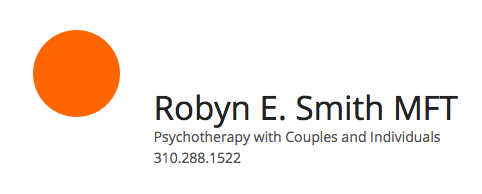Frequently Asked Questions
Q: How do I know if therapy can help me/us?
A: I think therapy can benefit anyone. People seek out therapy for a variety of reasons. Sometimes there is a very obvious and acute problem, e.g. you’ve started having anxiety attacks at work, or your partner had an affair. Other times, the issue is less tangible, but equally important to address, e.g. you’re generally dissatisfied with your life or you’ve lost your sexual attraction to your partner. Having another person who is educated and trained to help you understand your thoughts and feelings can lead to insights and solutions previously out of your awareness. Oftentimes individuals and couples come to therapy after the problem has festered for a while. I think it’s important to try to nip the problem in the bud if possible. In other words, things don’t have to be dire before you seek out help from a therapist. Feeling confused or like something’s “not right” in your life or relationship is enough to warrant getting into therapy.
Q: What if my partner is not as interested in going to couples therapy as I am?
A: It’s not unusual that one partner is more into the idea of going to therapy than the other. Maybe you are more “therapy savvy” and your partner feels at a disadvantage because he or she has little or no experience with therapy. You may want to go to therapy to save the relationship while your partner feels like giving up. I am sensitive to the fact that partners have unique goals and expectations for the therapy. I am interested in each of your concerns and make space for them. I want the therapy to work for both of you.
Q: Are we going to dig up the past? I’m interested in addressing the problems I am/we are having now.
A: I think it’s helpful to understand issues of the past as much as they relate to issues in the present. In the beginning, I’m likely to ask you about certain things in your life or you and your partner’s lives so I can help you with whatever is affecting you now. My focus is on helping you make immediate positive changes in your life in whatever way works.
Q: What am I getting myself into?
A: No doubt, therapy requires a commitment. As your therapist, I set aside time in my schedule to meet with you and commit myself to focusing on you (or you and your partner) and thinking deeply and creatively about what I see and hear. In my experience, coming at least one time per week is the most effective way to get to and explore the heart of the issues that bring you to therapy. My hope is that what you are getting into is a life-chaging process that will benefit you for the rest of your life.
Q: What’s the cost? And how long will it take?
A: My fee is $275 for a 50 minute individual session and $325 for a 60 minute couples session. The length of therapy depends on the issues we decide to address in our work together. I understand that therapy can be a costly investment. While some people, understandably, want to know ahead of time how long they will need to come to resolve the issues for which they’re seeking help, my experience is that the course and length of therapy is impossible to predict. It is my goal to get you to the point of feeling like you don’t need to come to therapy anymore in as short a time as possible.
Q: Do you take insurance?
A: Currently I am not taking new patients who wish to use “in-network” benefits. However, I am happy to provide statements, called superbills, to submit to your insurance company for “out-of-network” benefits in the case that they reimburse for mental health services.
Q: What do I/we do to get started?
A: Call my office to set up an appointment. We’re likely to speak briefly on the phone. I’m happy to discuss issues you need addressed to decide whether or not to set up a meeting. Otherwise, I think it is important that our initial experience of one another is in person. This is especially true if you’re coming in for couples therapy because I want to avoid starting out the therapy more aware of one partner’s concerns than the other. At our first meeting we’ll talk about what you’re needing help with and our plan for the therapy. You’ll get a sense of me and how I work and we’ll make sure you feel confident I can help you. Once we decide to work together, we’ll work out a meeting schedule and go over my office policies and other important things for you to know. If, for whatever reason, we decide not to continue working together, I will provide referrals for you.
